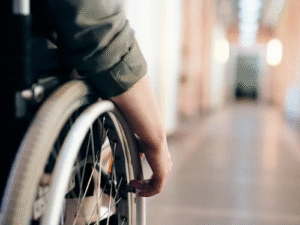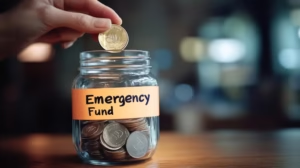Top Credit Card Scams: How to Identify and Avoid Them
Discover the main credit card scams, learn how to identify them, and get practical tips to avoid fraud and protect your finances.
Learn how to identify credit card scams

Credit cards have become one of the most widely used payment methods worldwide. They offer convenience, security, and even extra benefits. But this popularity also attracts criminals, who create increasingly sophisticated scams to steal consumers’ information and money.
To protect your finances, it’s essential to understand the main scams, learn how to identify them, and know how to avoid them.
In this article, you’ll learn about the most common types of credit card fraud and what steps to take to avoid falling into these traps.
Phishing: The Fake Email or SMS Scam
Phishing is one of the most common scams. In this scam, the criminal sends emails or text messages that appear to be from your bank or card issuer.
The text typically contains suspicious links or asks you to confirm your personal and banking information.
How to Identify It?
The sender usually has a strange email address or one that is slightly different from the official one. There are spelling errors or suspicious formatting. Finally, the link does not lead to the institution’s real website.
How to Avoid It
- Never click on links received in unsolicited messages;
- Access the bank’s website by typing the address into your browser;
- If you have any questions, contact the customer service center directly.
Skimming: Card cloning on card machines
Skimming occurs when a fraudulent device is attached to payment terminals or ATMs. This device copies card data as soon as it is inserted.
How to identify it?
- Card machines with an odd appearance, loose parts, or poorly fitted parts;
- ATMs with damaged or very non-standard card readers;
How to avoid it
- Prefer to use ATMs in busy bank branches;
- Always cover the keypad when entering your PIN;
- Activate SMS or app notifications to track transactions in real time.
Phone Scams (Vishing)
In vishing, scammers call pretending to be from a bank and say there’s a problem with your card. They ask for confidential information, such as a password or security code.
How to spot it?
You can spot it by calls where the operator pressures you to provide information immediately. They can also be identified by asking for information that the bank never requests over the phone, such as a full password.
How to avoid it
- Be wary of any unexpected calls about your card;
- Never provide your password or CVV over the phone;
- If you have any questions, hang up and call the bank’s official number.
Card-Locked Scam
This scam occurs at ATMs. The criminal installs a device that traps the card inside the machine. While the victim tries to resolve the issue, a “helpful” person appears offering assistance and asking for the PIN.
How to identify this?
Situations such as a card being stuck for no apparent reason can occur. Also, keep an eye on your surroundings, as people may offer help without being identified as bank employees.
How to avoid it
- Never accept help from strangers at ATMs;
- Look for a branch employee;
- Call the bank immediately and block the card.
Public Wi-Fi Scams
Using your card on public Wi-Fi networks can expose your data to hackers. Accessing banking websites on open connections can lead to data interception.
How to spot them?
Open networks without a password in busy areas, as well as connections that request personal information to grant access. Keep an eye out for these scams, as they’re easy to spot.
How to avoid them
- Avoid using cards on public Wi-Fi;
- Prefer secure connections and use a VPN;
- Enable two-factor authentication on all services.
Use your credit card safely
Credit card scams are constantly evolving, but knowing the main strategies used by criminals is half the battle to protecting yourself.
Attention to detail, being careful when sharing information, and using your bank’s own security tools are powerful allies in keeping your finances safe.
By adopting these measures, you drastically reduce your chances of falling victim to fraud and ensure greater peace of mind when using your credit card in your daily life.






